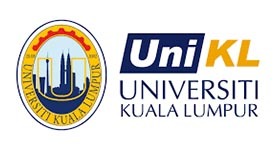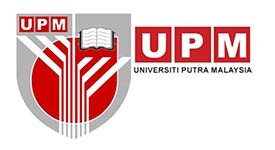Petroleum Engineering Course in Malaysia : Complete Guide for International Students

- Home
- Specialization
- Petroleum Engineering
Petroleum Engineering in Malaysia- Fee Structure, Admission, Top Engineering Universities
Petroleum Engineering is a field of engineering concerned with the activities related to the production of hydrocarbons, which can be either crude oil or natural gas. It involves searching, extracting, and processing crude oil and natural gas from the earth by using safe, cost-effective, and environmentally friendly methods.
General Qualifications of Petroleum Engineering Program
In order to enter into Petroleum courses, you will generally need:
| Programme | Requirements |
| Bachelor’s Degree (4-Years) |
|
Note: The information displayed above may vary between universities, colleges, and institutions.
Understanding the importance of the world running by supplying energy to fuel homes, cars and gadgets is the role of a Petroleum Engineer. Not only this but petroleum also helps in creating everyday products such as medicine, cosmetics and even plastic and many more. Joining the petroleum engineering program in Malaysia will take 4-years of study, learning the fundamentals of physics and chemistry as well as numerous projects in year 4 study in Malaysia.
The study of master in Petroleum Engineering in Malaysia will teach you the stages of Oil Production
Exploration- Studying to predict the potential production of petroleum of the dig sites.
Extraction- Deciding the most effective way of drilling methods and equipment, and managing the technical aspects of drilling and production.
Subjects for Study Petroleum Engineering in Malaysia
- Fundamentals of Petroleum Engineering
- Petroleum Geology
- Fluid Mechanics
- Safety in Oil & Gas Engineering
- Production Engineering
- Enhanced Oil Recovery
- Field Development Project
- Petroleum Economics
What are the best universities to study petroleum engineering in Malaysia
Here are the best petroleum engineering programs
- University of Texas--Austin (Cockrell)
- Texas A&M University--College Station.
- Stanford University.
- Pennsylvania State University--University Park.
- The University of Oklahoma.
- Colorado School of Mines.
- The University of Tulsa.
- University of Southern California (Viterbi)

List of Petroleum Engineering Universities in Malaysia with courses

Courses:
105World Rank:
265Scholarship: Yes
105
Courses:
76World Rank:
Scholarship: Yes
76
Courses:
34World Rank:
269Scholarship: Yes
34
Courses:
21World Rank:
174Scholarship: Yes
21
Courses:
17World Rank:
Scholarship: Yes
17
Courses:
97World Rank:
801-850Scholarship: Yes
97
Courses:
145World Rank:
Scholarship: Yes
145
Courses:
91World Rank:
60Scholarship: Yes
91
Courses:
90World Rank:
181Scholarship: Yes
90The duration of the Petroleum Engineering in Malaysia
The petroleum program in Malaysia on average is 4 years duration.
- Bachelors in Petroleum Engineering - 3 Years
- Masters in Petroleum Engineering - 4 Years
Entry Requirement to study Petroleum Engineering from Malaysia
If you want to study Petroleum Engineering at the University of Malaysia, you will first need to clear the pre-university course like the A-Level, STPM or Foundation in Science. And then you can pursue admission in Petroleum Engineering Degree.
Degree in Petroleum Engineering in Malaysia
The requirements to get a Degree in Petroleum Engineering you will need:
- A-Level- Minimum 2Ds including Mathematics and Physics
- STPM- Minimum 2Cs including Mathematics and Physics
- Australian Matriculation- Minimum of ATAR 50, including a minimum average of 60% in Mathematics and Physics
- Foundation in Science- Minimum CGPA 2.00
The thing to remember is that the eligibility criteria might differ in different Universities for Petroleum Engineering in Malaysia, so it's recommended that you research well before you choose your University in Malaysia.
What is the cost to study Petroleum Engineering in Malaysia
To study Petroleum Engineering from University in Malaysia, you will have to pay an approx of RM 100,000 per year. However, the tuition fees differ from University to University so it is suggested that you do your research well even before you plan to study in Malaysia.
Career Prospects as Petroleum Engineer in Malaysia and worldwide
Petroleum Engineering Graduates from Malaysia University can work in Oil & Gas Industry in Oil Exploration and Production companies, Engineering Consultancies and specialist drilling contractors
Below you will find some Engineering related jobs in Malaysia you can look up-
- Drilling Engineer
- Production Engineer
- Reservoir Engineer
- Well Completion Engineer
- Process Engineer
- Quality Assurance Engineer









